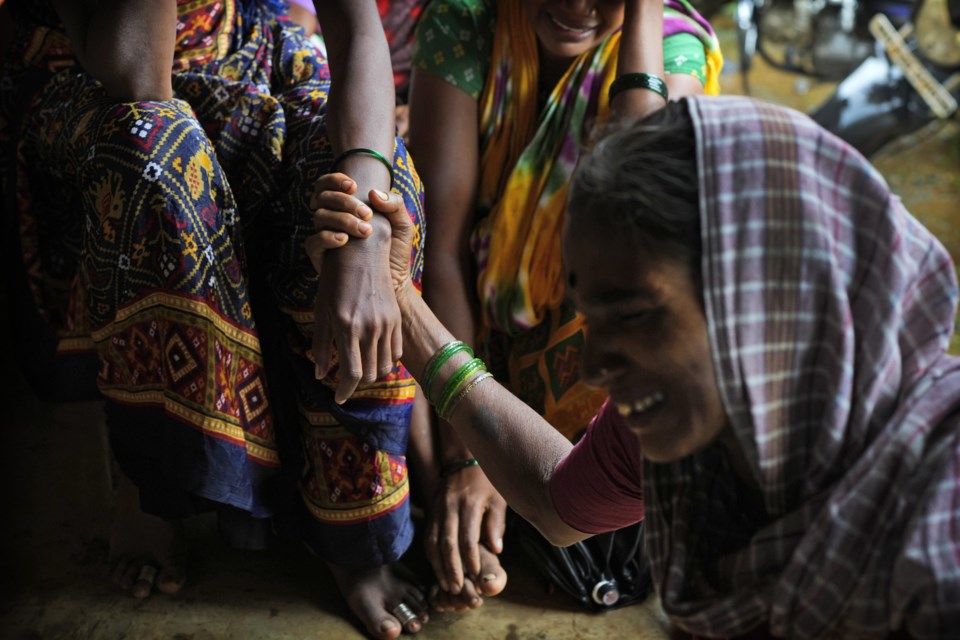A landslide triggered by torrential rains in India’s western Maharashtra state killed at least 10 people, with many others feared trapped under piles of debris, officials said Thursday. In this image captured by Associated Press photographer Rafiq Maqbool, a woman holds the hand of her relative as family members of people trapped under rubble wail after a landslide washed away houses.
In Greece, a huge fire was contained west of Athens, but authorities braced Thursday for a new round of extreme weather. Searing heat across Europe’s Mediterranean south has maintained a high or very high risk of fires in Spain, Italy and Greece. And in the Balkans, a storm that followed an intense heat wave left six dead, including a Coatian firefighter.
Here's what's happening related to extreme weather and the climate right now:
—In a refugee camp in Kenya, food shortages left kids hungry amid a drought even before Russia ended the grain deal. One farmer was forced to give most of his produce as tax to al-Qaida-linked extremists who have controlled parts of Somalia for years, and the little that remained wasn’t enough to feed his family during Somalia’s worst drought in decades, Evelyne Musambi reports.
__A study found that the exclusion of race from a federal climate justice tool could worsen air pollution exposure disparities along racial lines in the U.S., Drew Costley reports.
—Temperatures have peaked at or above 110 degrees Fahrenheit (43.3 degrees Celsius) the entire month of July in Phoenix and air conditioning has been a lifeline for many in the city. Isabella O’Malley and Beatrice Dupuy explain how the heat wave has some residents concerned about the energy bills they’ll receive.
—Travelers, considered a bellwether for the U.S. insurance industry due to its size, said Thursday that catastrophe losses doubled in its most recent quarter as severe wind and hailstorms in a number of regions led to rising coverage claims, Michelle Chapman reports.
—Canada’s worst-ever wildfire season has choked much of North America with dangerous smoke for months, coupling with deadly heat around the globe in a summer that’s focusing the world’s attention on the perils of climate change. See the photos by Noah Berger here.
—The tornado damage to a Pfizer plant in North Carolina will likely mean shortages of some drugs hospitals need, Tom Murphy reports.
QUOTABLE:
“This level of heat that we are having in Phoenix right now is enormously dangerous, particularly for people who either don’t have air conditioning or cannot afford to operate their air conditioner,” said Evan Mallen, a senior analyst for Georgia Institute of Technology’s Urban Climate Lab.
___
Associated Press climate and environmental coverage receives support from several private foundations. See more about AP’s climate initiative here. The AP is solely responsible for all content.
The Associated Press




